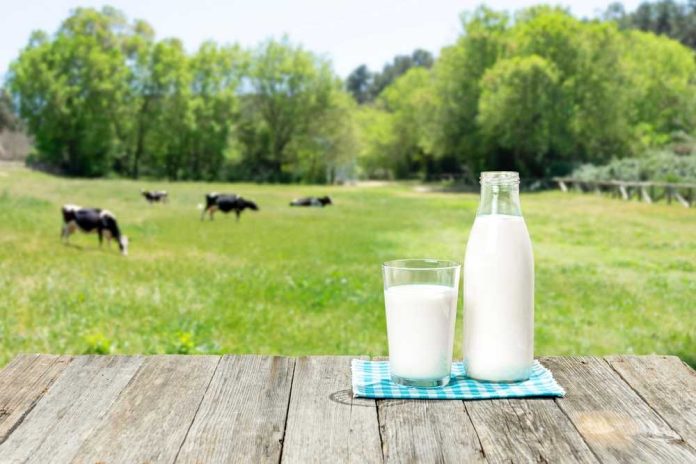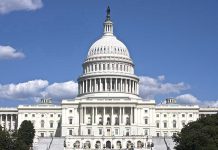
Coca-Cola’s dairy brand Fairlife faces yet another animal cruelty scandal as Arizona authorities investigate two of its milk suppliers for horrific abuse documented by undercover activists.
Key Takeaways
- Arizona Department of Agriculture is investigating Rainbow Valley Dairy and Butterfield Dairy, suppliers for Coca-Cola-owned Fairlife milk, for alleged animal cruelty
- Undercover investigation by Animal Recovery Mission revealed workers beating, kicking, and brutally mistreating cows at supplier facilities
- A federal false advertising lawsuit has been filed against Fairlife, Coca-Cola, and Select Milk Producers for deceptive marketing claims about humane treatment
- This scandal follows a previous $21 million settlement in 2022 over similar animal abuse allegations
- Despite marketing claims of ethical practices, investigators found “systemic cruelty” continues at multiple Fairlife suppliers
Ongoing Investigation Exposes Cruelty Behind “Ethical” Marketing
The Arizona Department of Agriculture has confirmed it’s investigating Rainbow Valley Dairy and Butterfield Dairy, both suppliers for the Coca-Cola-owned Fairlife milk brand, following disturbing allegations of animal cruelty. The investigation stems from a February report by the Animal Recovery Mission (ARM), an animal rights group with a history of exposing abuse in the dairy industry. Sheldon Jones, deputy director of programs at the Arizona Department of Agriculture, verified the ongoing inquiry on June 17 but provided no further details due to the active status of the investigation.
The allegations represent just the latest chapter in Fairlife’s troubled history of animal welfare violations that directly contradict the company’s marketing claims. Fairlife has built its brand on promises of superior animal care and sustainability, charging premium prices for products supposedly produced under the highest ethical standards. Yet this facade continues to crumble as investigators repeatedly document horrific conditions at supplier farms across multiple states.
Pattern of Abuse and Deception
ARM’s investigations have uncovered systemic animal cruelty at multiple Fairlife suppliers. At Woodcrest Dairy in New Mexico, another Fairlife supplier, undercover footage documented workers kicking and beating cows, and even using chains to forcefully extract fetuses from pregnant animals. These practices stand in stark contrast to Fairlife’s marketing, which emphasizes “exceptional animal care” and “sustainable farming practices” to justify premium pricing for their milk products.
“From someone that’s a specialist in investigating cruelty in the dairy industry globally, Fairlife is top-tier, the worst offenders,” said Richard Couto, founder of Animal Recovery Mission.
Despite paying $21 million to settle a class-action lawsuit in 2022 over previous animal abuse allegations, Fairlife appears to have continued its relationships with problematic suppliers. The current federal false advertising complaint accuses Fairlife, Coca-Cola, and Select Milk Producers of fraud, claiming they’ve merely created the illusion of reform while continuing to source milk from operations with documented abuse. The lawsuit also alleges “recycling fraud” due to Fairlife’s use of non-recyclable opaque plastic bottles despite sustainability claims.
Corporate Response and Continuing Sales
Fairlife has responded to the allegations with typical corporate damage control, claiming it has stopped sourcing from the implicated dairies. “We are deeply committed to animal welfare and have zero tolerance for abuse. We work closely with our co-op partners to ensure the highest standards of care are consistently upheld across all their member farms that supply milk for Fairlife products,” the company stated in response to the allegations.
The lawsuit, however, claims this is merely another deception, alleging that Fairlife continues to receive milk from these operations through other channels. Most concerning for consumers is that despite repeated scandals, Fairlife’s sales continue to grow, with many purchasers completely unaware that they’re supporting operations that systematically abuse animals while paying premium prices for supposedly ethical products. This disconnect between marketing and reality raises serious questions about corporate accountability and the effectiveness of consumer protection laws in the food industry.
As the Arizona investigation proceeds, it highlights the critical need for genuine transparency in food production and the hollow nature of corporate ethical claims without rigorous independent verification. For now, consumers who value animal welfare may need to look beyond glossy marketing to ensure their purchasing decisions align with their values.







